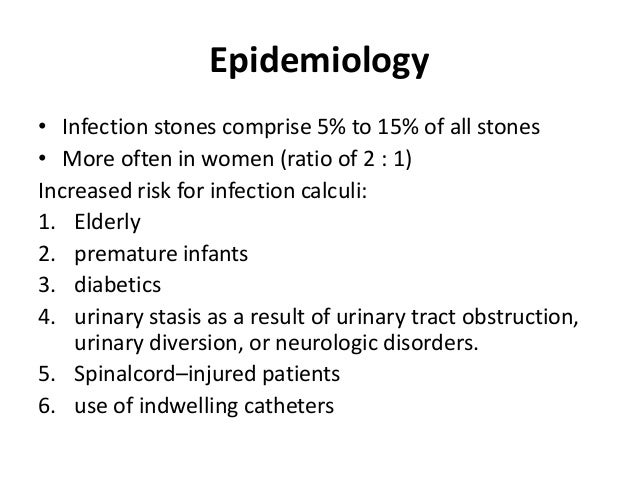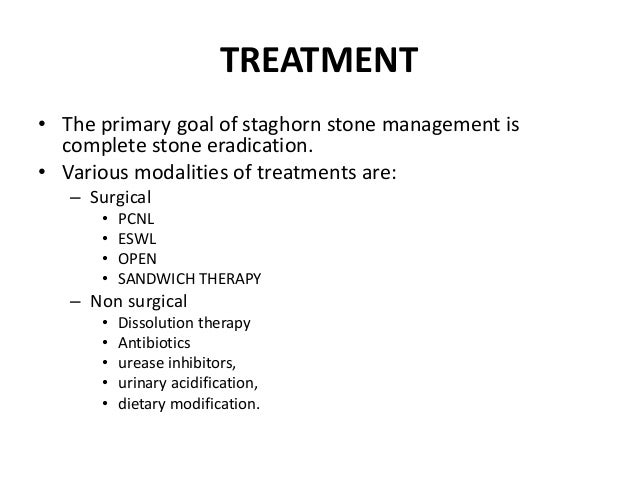A staghorn calculus is a type of kidney stone that has a unique shape resembling a deer's antlers. It is an extremely large, branched, and complicated calculus that can cause severe complications if not treated promptly. The calculus is formed within the renal pelvis and can extend into one or more of the calyces- the chambers that connect the kidney to the bladder.
Causes of Staghorn Calculus
The formation of staghorn calculi is the result of several factors that contribute to kidney stone formation. These factors include:
- Elevated levels of calcium, oxalate, or uric acid in the urine
- Dehydration
- Infection in the urinary tract
- Genetic susceptibility
Patients with staghorn calculi typically present with symptoms such as back pain, flank pain, hematuria (blood in the urine), and frequent urination. If left untreated, the calculus can cause significant complications such as kidney failure, sepsis, and even death.
Diagnosis of Staghorn Calculus
The diagnosis of staghorn calculus is typically made using imaging tests such as X-rays, CT scans, and ultrasounds. These tests can help identify the size, shape, and location of the calculus. Further tests may be necessary to determine the underlying cause of the stone formation.

Treatment for Staghorn Calculus
The treatment of staghorn calculus varies depending on the size and location of the calculus, as well as the patient's overall health. If the calculus is small and causes no symptoms, a wait-and-see approach may be taken. However, if the calculus is large or causing complications, it must be removed.
The most common method of removing a staghorn calculus is through a surgical procedure known as percutaneous nephrolithotomy. This involves making a small incision in the back and inserting a tube into the kidney to remove the calculus. Other treatments include extracorporeal shock wave lithotripsy (ESWL), which uses sound waves to break up the calculus, and ureteroscopy, which involves passing a small scope through the urethra to remove the stone.

Prevention of Staghorn Calculus
Prevention of staghorn calculus is key in individuals who are at risk of developing kidney stones. This can be done by:
- Drinking plenty of fluids to flush out the urinary system
- Reducing the consumption of foods high in oxalates, such as spinach, rhubarb, and chocolate
- Reducing the consumption of foods high in animal protein, such as red meat, fish, and poultry
- Treating urinary tract infections promptly
In conclusion, staghorn calculus is a serious complication of kidney stone formation that requires prompt diagnosis and treatment. Patients should be diligent in preventing the formation of kidney stones by taking steps to reduce risk factors and seek medical help if they suspect they may have a problem.
If you are searching about Profile of complications occurred during the treatment series. NO. Of you've came to the right place. We have 6 Pictures about Profile of complications occurred during the treatment series. NO. Of like Staghorn calculus – etiology, diagnosis, management, Staghorn calculi and also Profile of complications occurred during the treatment series. NO. Of. Read more:
Profile Of Complications Occurred During The Treatment Series. NO. Of
 www.researchgate.net
www.researchgate.net staghorn calculi occurred complications
Staghorn Calculi
 www.slideshare.net
www.slideshare.net staghorn calculi
Staghorn Calculus – Etiology, Diagnosis, Management
 www.slideshare.net
www.slideshare.net calculus staghorn etiology
First Tomography With Atrophy Of Right Kidney And Staghorn Calculi
 www.researchgate.net
www.researchgate.net staghorn atrophy tomography calculi
Staghorn Kidney Stones | Kidney Stones, Staghorn Calculus, Kidney
 www.pinterest.com
www.pinterest.com staghorn kidney stones calculus stone calculi disease nejm medical pathologies urinary comments dinosaur stuffed dysuria choose board wtf animals
Staghorn Calculus – Etiology, Diagnosis, Management
 www.slideshare.net
www.slideshare.net staghorn calculus diagnosis etiology
Staghorn kidney stones. Staghorn kidney stones calculus stone calculi disease nejm medical pathologies urinary comments dinosaur stuffed dysuria choose board wtf animals. Staghorn calculus – etiology, diagnosis, management
Keine Kommentare:
Kommentar veröffentlichen